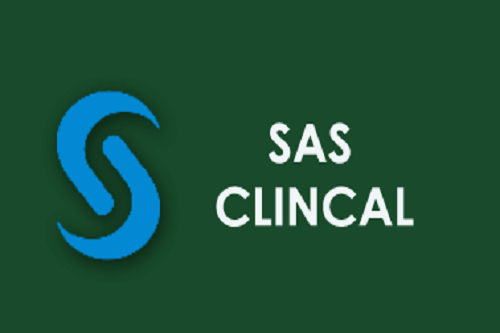SAS Clinical Programmer Jobs: Unlocking Opportunities in the Clinical Research Industry
Introduction
Clinical research is essential to coming up with new medical treatments and figuring out how safe and effective they are. SAS Clinical Programmers are an essential part of this process. They use their technical knowledge to manage and analyze data from clinical trials. In this blog, we will talk about the world of SAS Clinical Programmer jobs, the skills you need to be successful in this field, and how to find work.
The roles and responsibilities of a SAS Clinical Programmer
SAS Clinical Programmers are in charge of making, putting into place, and keeping up with programs that analyze and report clinical trial data. Their primary duties are:
- Data Management: Data management is importing, cleaning, and changing raw data from clinical trials to ensure it is correct and complete.
- Statistical Analysis: Statistical analysis uses descriptive statistics, hypothesis testing, and regression modeling to look at data from clinical trials.
- Reporting and Visualization: Making clear and concise tables, lists, and graphs to show the results of a clinical trial.
- Quality Control: Quality control is the process of ensuring that the results of an analysis are correct and of good quality.
- Collaboration: Working closely with cross-functional teams, such as clinical data managers, biostatisticians, and medical writers, to help the clinical trial process.
Skills Needed to Get a Job as a SAS Clinical Programmer
To be a good SAS Clinical Programmer, you need a unique mix of technical skills and skills specific to your field. Some essential skills are:
- SAS Programming: Expertise in Base SAS, SAS/STAT, and SAS/GRAPH programming, as well as SAS programming in general.
- Clinical Trial Knowledge: Familiarity with CDISC standards for designing, collecting, and reporting data from clinical trials (SDTM and ADaM).
- Compliance with regulations: Knowing the rules, such as the ICH-GCP guidelines and the FDA/EMA submission standards.
- Data Management: Strong data management skills, including data cleaning, transformation, and validation techniques.
- Communication: Excellent communication skills because SAS Clinical Programmers must work with many different people and transparently share detailed information.
Looking for Jobs as a SAS Clinical Programmer
- Job Boards: Indeed, Glassdoor and LinkedIn are all good places to start when looking for SAS Clinical Programmer job postings. You can also look at job boards like BioSpace and Medzilla that are made for the clinical research field.
- Career Pages for Companies: Many pharmaceutical companies, Contract Research Organizations (CROs), and research institutions use their career pages to post job openings. Check the websites of companies you want to work for often to learn about new job opportunities.
- Networking: Use your professional network and attend industry conferences, seminars, and workshops to meet other professionals in the clinical research industry. Networking can help you find jobs that may not be advertised widely.
- Certifications and training: Get relevant certifications, like the SAS Certified Clinical Trials Programmer credential, to improve your skills and stand out to potential employers.
- Social Media: Follow industry leaders, organizations, and companies on social media sites like LinkedIn and Twitter to stay up-to-date on job openings and trends in your field.
Conclusion
SAS Clinical Programmer jobs give people rewarding chances to help advance medical research and develop treatments that save lives. By improving your technical and domain-specific skills, staying up to date on job openings, and networking with professionals in the clinical research industry, you can open up exciting career opportunities and make a difference in patients' lives worldwide.
Find a course provider to learn SAS Clinicals
Java training | J2EE training | J2EE Jboss training | Apache JMeter trainingTake the next step towards your professional goals in SAS Clinicals
Don't hesitate to talk with our course advisor right now
Receive a call
Contact NowMake a call
+1-732-338-7323Enroll for the next batch
SAS Clinicals Training With Placement
- Dec 17 2025
- Online
Clinical SAS programmer Training
- Dec 18 2025
- Online
Clinical SAS programmer Training
- Dec 19 2025
- Online
Related blogs on SAS Clinicals to learn more
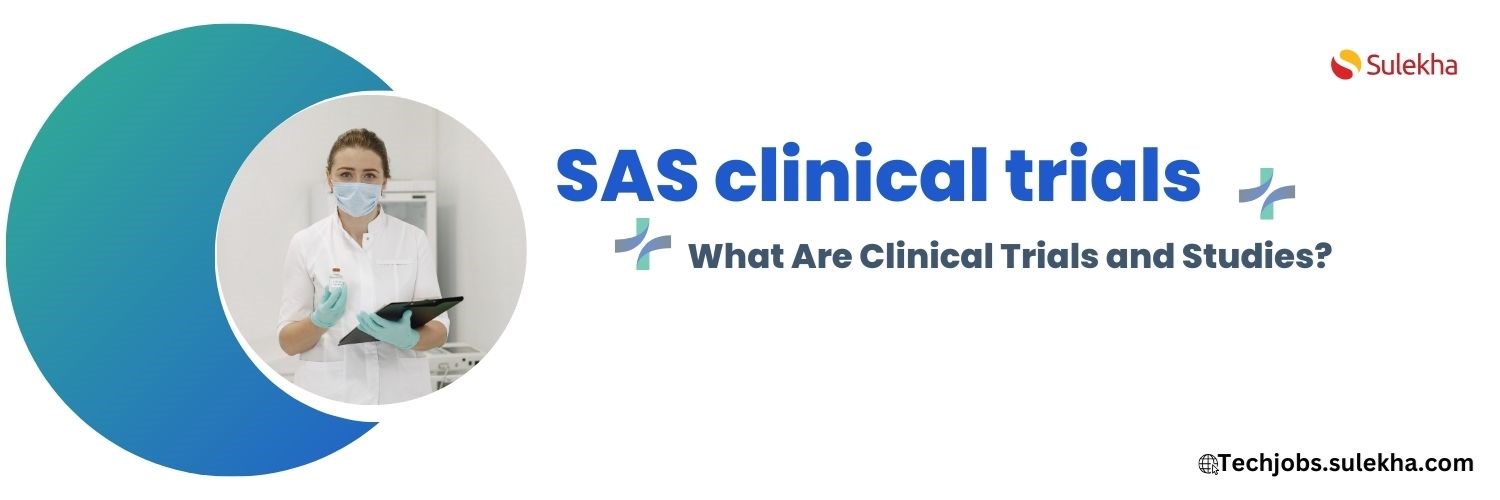
SAS clinical trials -What Are Clinical Trials and Studies?
Learn how SAS (Statistical Analysis System) supports clinical trials by analyzing data, ensuring regulatory compliance, and transforming raw data into actionable insights for drug efficacy and safety.
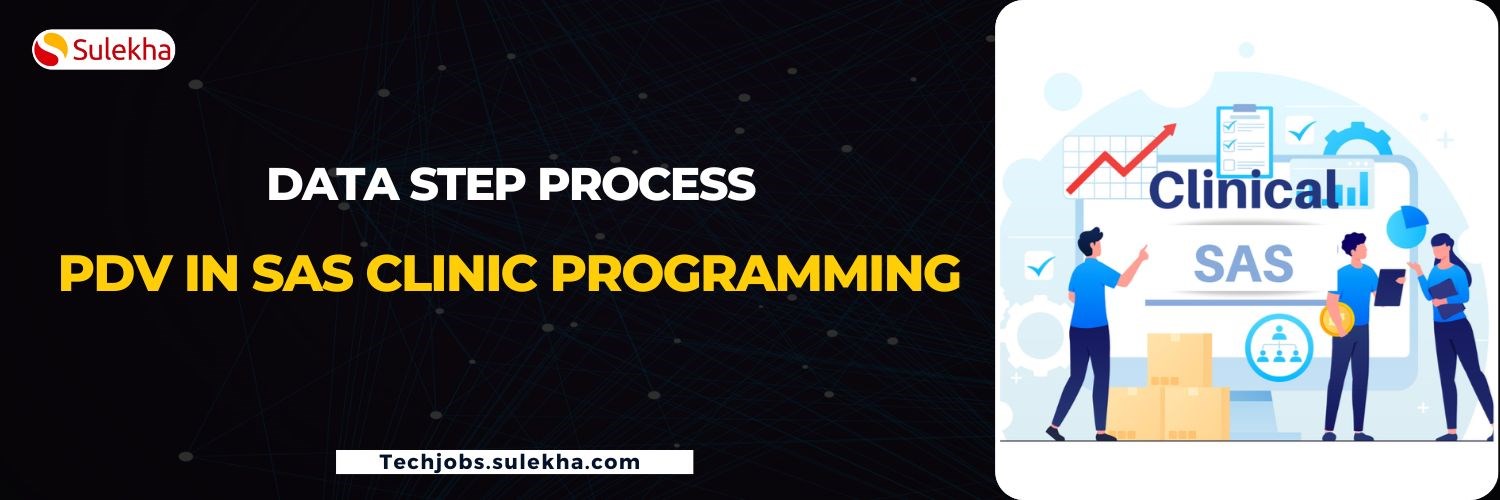
IMPORTANCE OF UNDERSTANDING DATA STEP PROCESS AND PDV IN SAS CLINIC PROGRAMMING
"Master the fundamentals of SAS clinical programming by understanding the significance of the DATA step process and the Program Data Vector (PDV), crucial for efficient data manipulation and accurate results in clinical trials."

Benefits of using SAS in Clinical Research!
In addition to achieving complete view on the patient data and readmission patterns, SAS Clinical software provides access to all relevant clinical and nonclinical data for real-time decisions. And a better understanding of your clinical performance.

Why SAS Clinical Is A Perfect Choice For Scientific Career Opportunities
Clinical SAS programming helps students to learn basic as well as advanced SAS clinical concepts. The programming is mainly used for doing clinical analysis and managing clinical and scientific research data files. It enables to generate and cross st
Latest blogs on technology to explore

From Student to AI Pro: What Does Prompt Engineering Entail and How Do You Start?
Explore the growing field of prompt engineering, a vital skill for AI enthusiasts. Learn how to craft optimized prompts for tools like ChatGPT and Gemini, and discover the career opportunities and skills needed to succeed in this fast-evolving indust

How Security Classification Guides Strengthen Data Protection in Modern Cybersecurity
A Security Classification Guide (SCG) defines data protection standards, ensuring sensitive information is handled securely across all levels. By outlining confidentiality, access controls, and declassification procedures, SCGs strengthen cybersecuri

Artificial Intelligence – A Growing Field of Study for Modern Learners
Artificial Intelligence is becoming a top study choice due to high job demand and future scope. This blog explains key subjects, career opportunities, and a simple AI study roadmap to help beginners start learning and build a strong career in the AI

Java in 2026: Why This ‘Old’ Language Is Still Your Golden Ticket to a Tech Career (And Where to Learn It!
Think Java is old news? Think again! 90% of Fortune 500 companies (yes, including Google, Amazon, and Netflix) run on Java (Oracle, 2025). From Android apps to banking systems, Java is the backbone of tech—and Sulekha IT Services is your fast track t
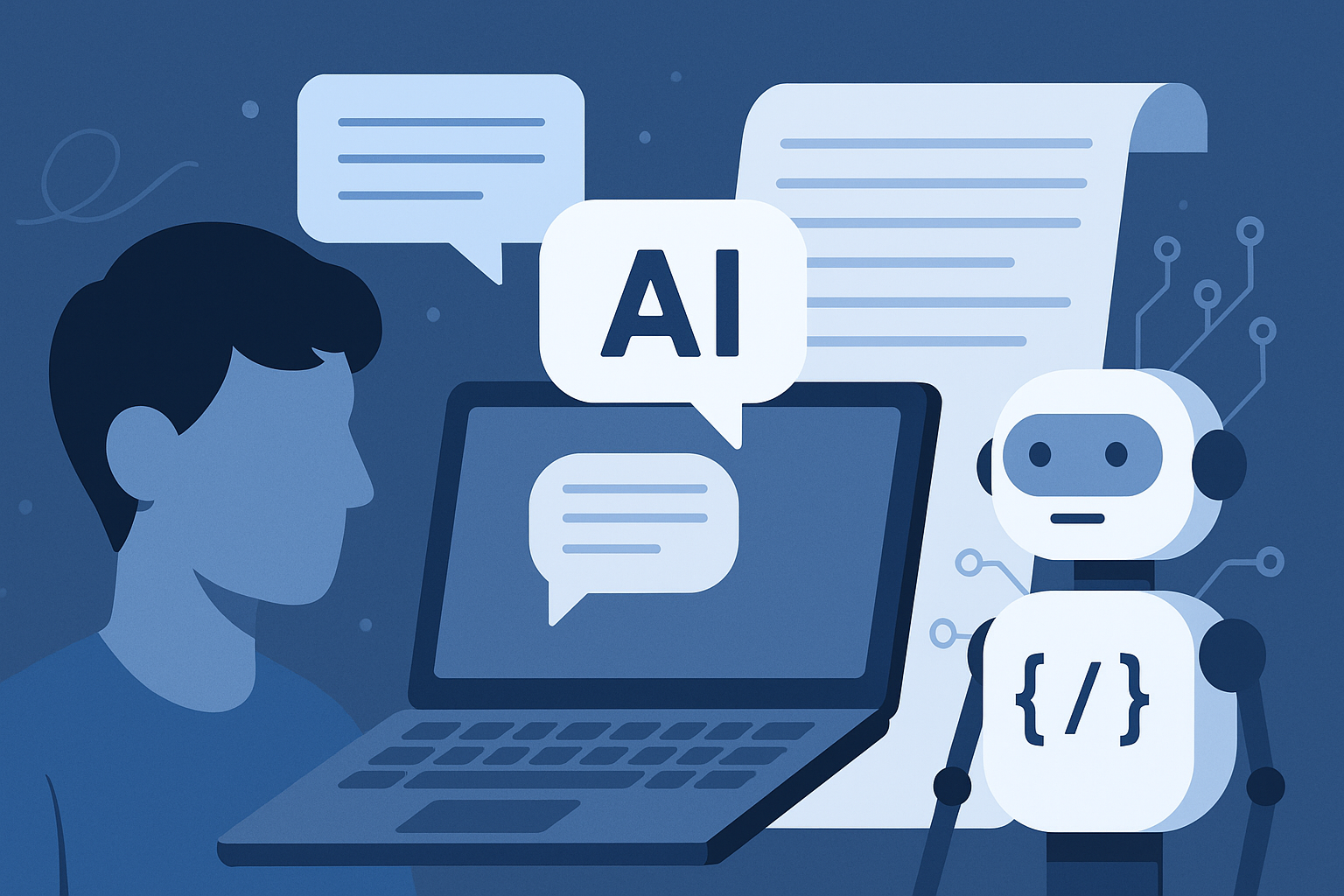
From Student to AI Pro: What Does Prompt Engineering Entail and How Do You Start?
Learn what prompt engineering is, why it matters, and how students and professionals can start mastering AI tools like ChatGPT, Gemini, and Copilot.

Cyber Security in 2025: The Golden Ticket to a Future-Proof Career
Cyber security jobs are growing 35% faster than any other tech field (U.S. Bureau of Labor Statistics, 2024)—and the average salary is $100,000+ per year! In a world where data breaches cost businesses $4.45 million on average (IBM, 2024), cyber secu

SAP SD in 2025: Your Ticket to a High-Flying IT Career
In the fast-paced world of IT and enterprise software, SAP SD (Sales and Distribution) is the secret sauce that keeps businesses running smoothly. Whether it’s managing customer orders, pricing, shipping, or billing, SAP SD is the backbone of sales o

SAP FICO in 2025: Salary, Jobs & How to Get Certified
AP FICO professionals earn $90,000–$130,000/year in the USA and Canada—and demand is skyrocketing! If you’re eyeing a future-proof IT career, SAP FICO (Financial Accounting & Controlling) is your golden ticket. But where do you start? Sulekha IT Serv

Train Like an AI Engineer: The Smartest Career Move You’ll Make This Year!
Why AI Engineering Is the Hottest Skillset Right Now From self-driving cars to chatbots that sound eerily human, Artificial Intelligence is no longer science fiction — it’s the backbone of modern tech. And guess what? Companies across the USA and Can
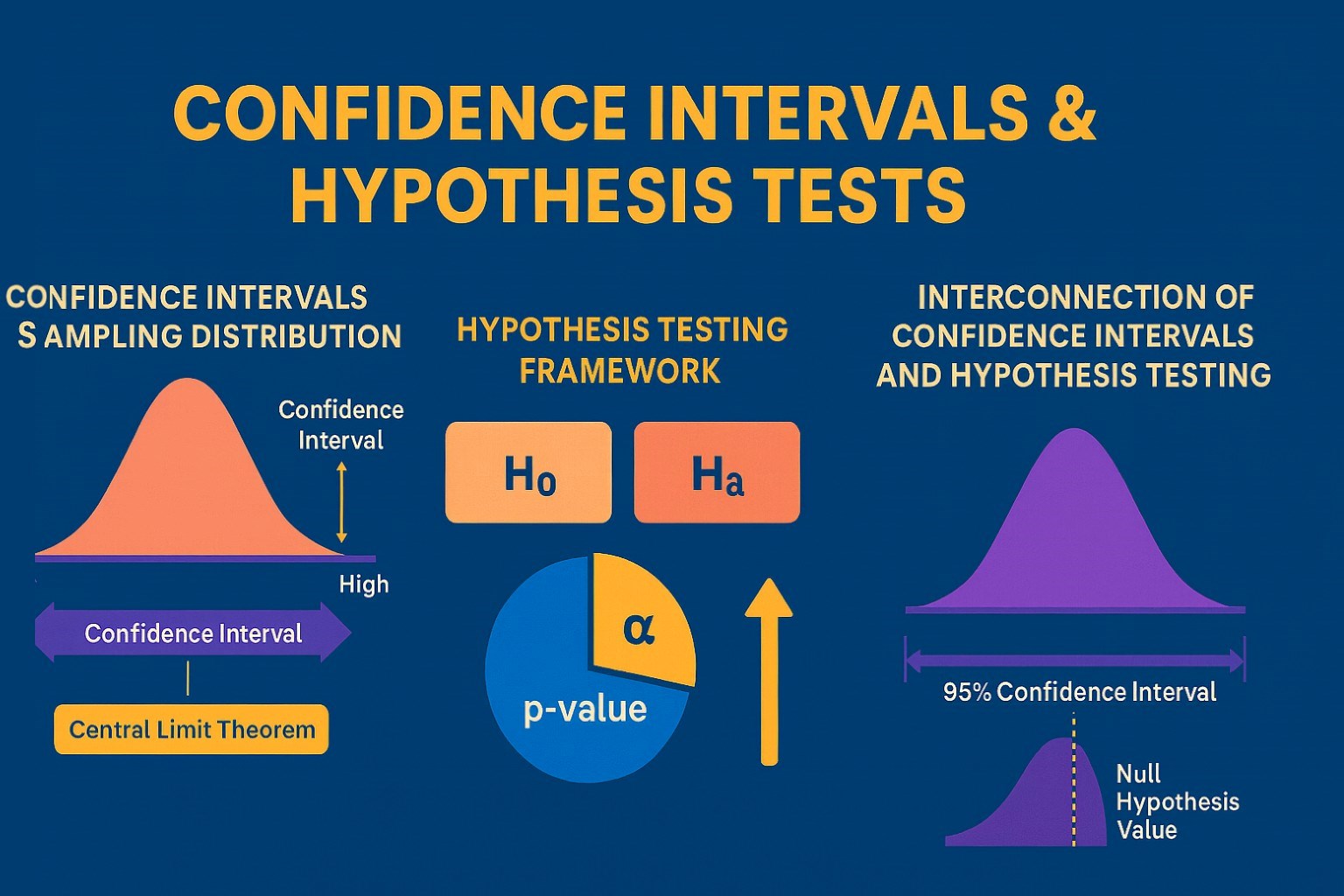
Confidence Intervals & Hypothesis Tests: The Data Science Path to Generalization
Learn how confidence intervals and hypothesis tests turn sample data into reliable population insights in data science. Understand CLT, p-values, and significance to generalize results, quantify uncertainty, and make evidence-based decisions.
